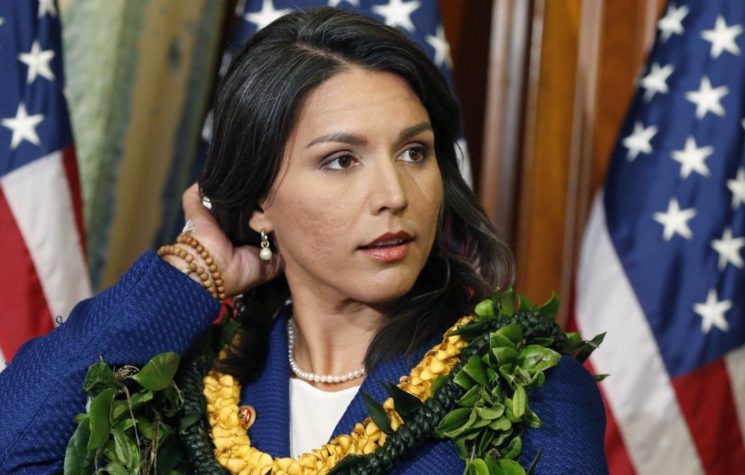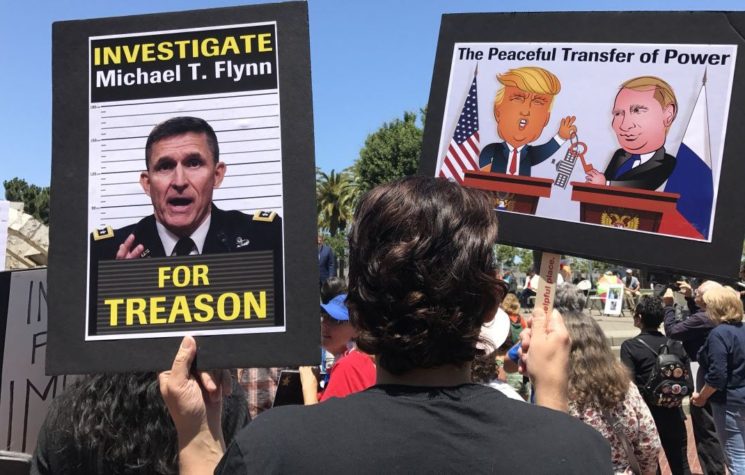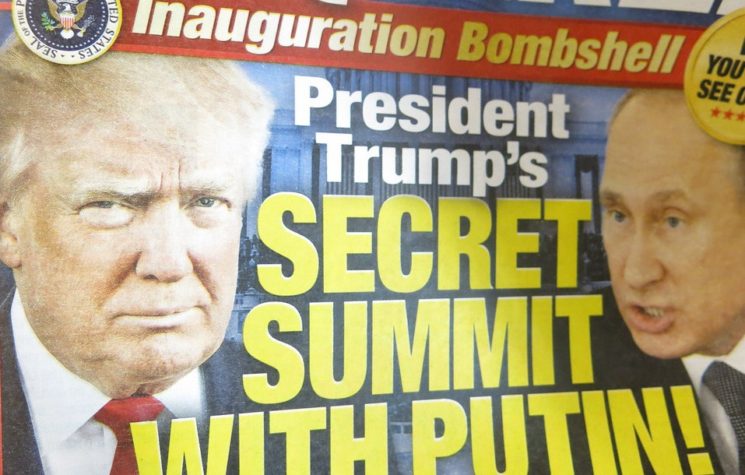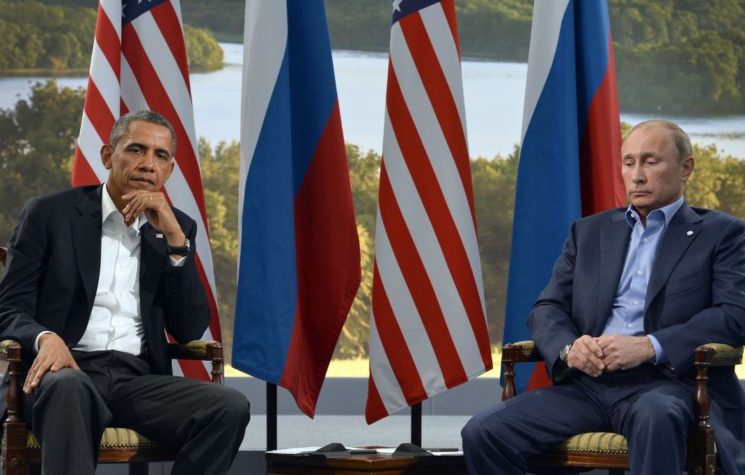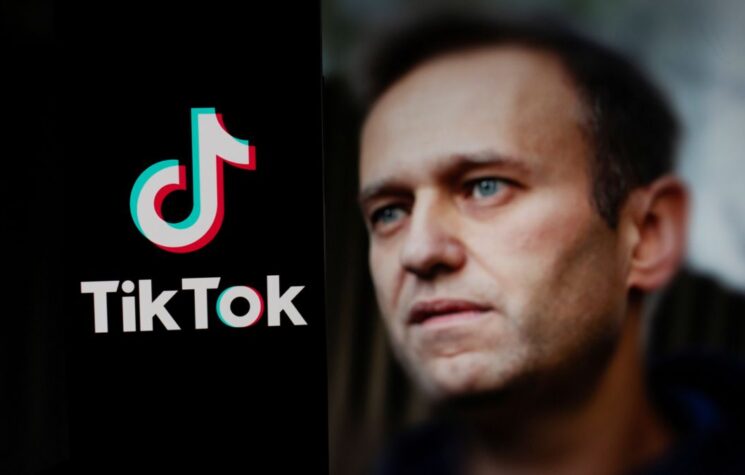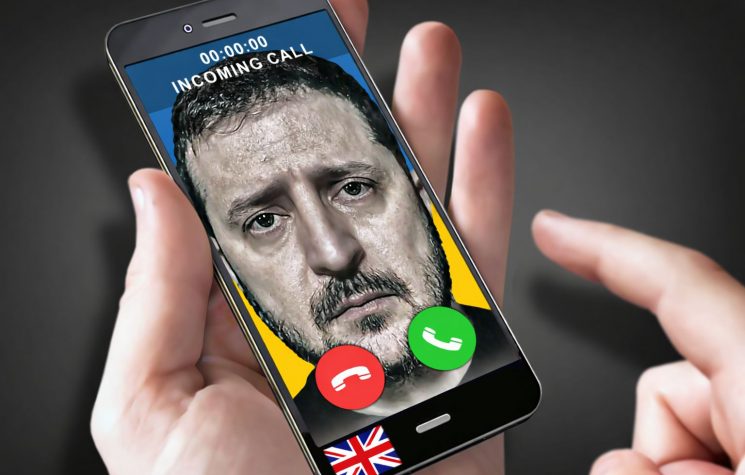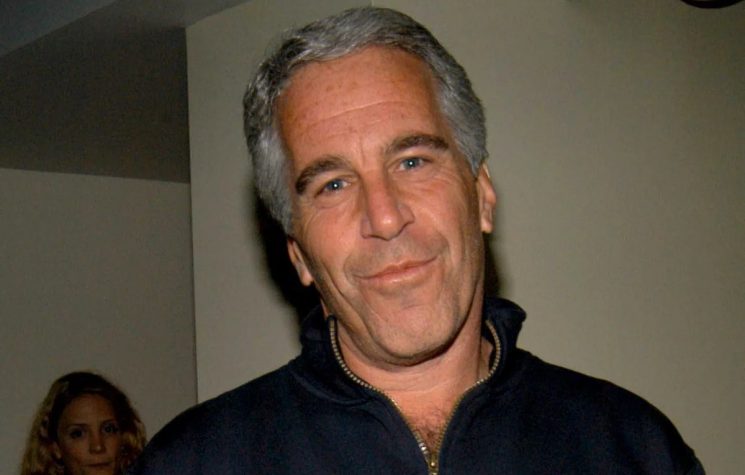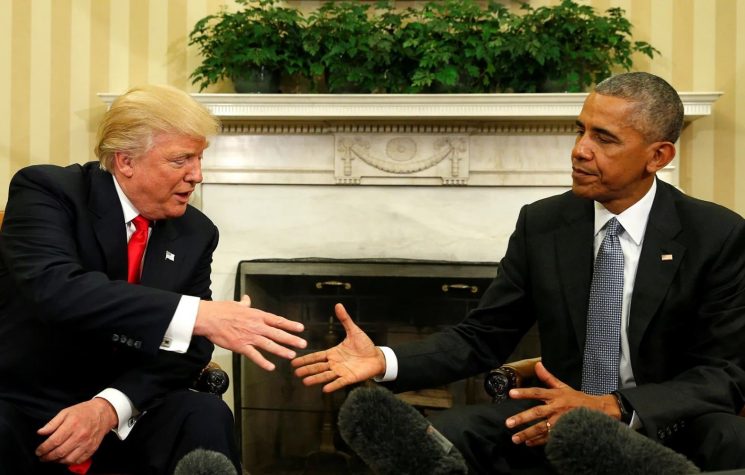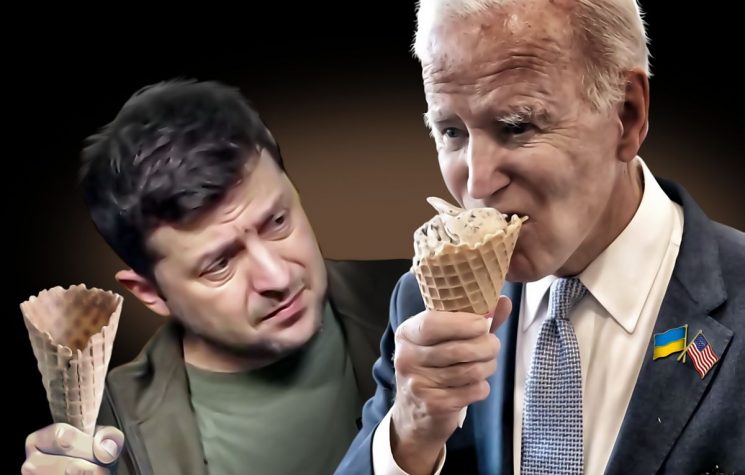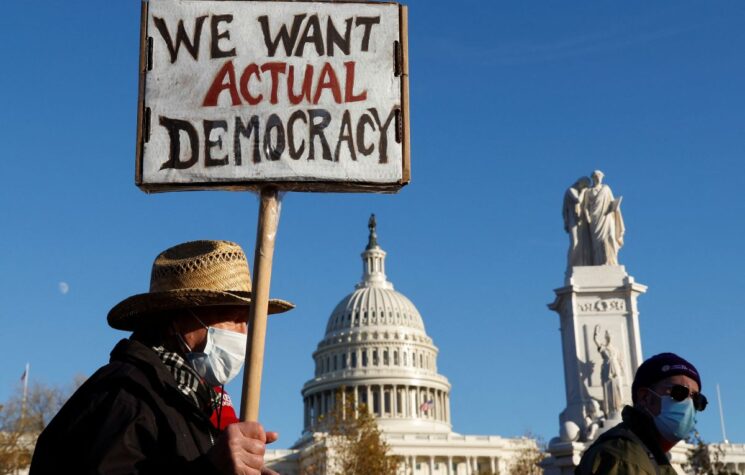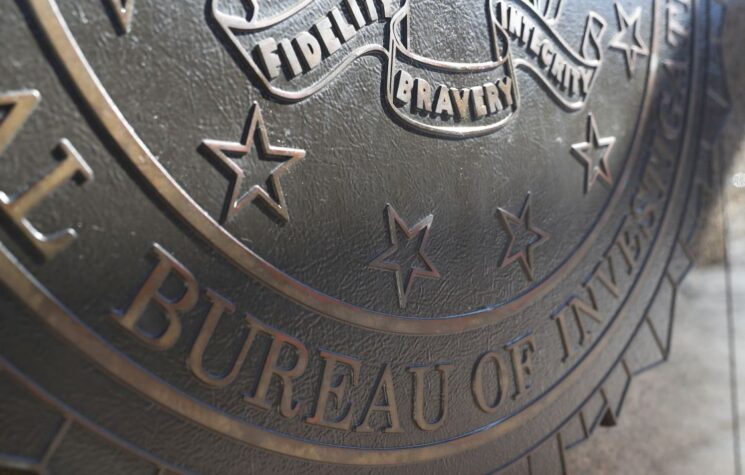Vladimir Putin has made a national sport of what-abouting. In 2014, when a journalist challenged him on his annexation of Crimea, Putin brought up the US annexation of Texas. The American invasion of Iraq is constantly what-abouted on state television, to excuse all kinds of Russian behavior.
– Dan Zak: “Whataboutism: The Cold War tactic, thawed by Putin, is brandished by Donald Trump“. Washington Post, 18 August 2017
“Trump Embraces One Of Russia’s Favorite Propaganda Tactics — Whataboutism”
– Danielle Kurtzleben, NPR, 17 March 2017
Essentially, it’s an appeal to hypocrisy ― a logical fallacy also known as “tu quoque.” Instead of proving that your opponent’s claim is wrong on its face, whataboutism argues that it’s hypocritical of the opponent to make that claim at all.
And, the author helpfully goes on to explain: “Perhaps unsurprisingly, considering the Trump administration’s murky ties to Vladimir Putin and his associates, whataboutism is viewed by many as a Russian import.” Trumputin again! (Written, of course, before Mueller crashed.)
The author is half right: it’s hypocrisy, but it’s not an appeal to it, it’s a revelation of it.
As the quotations above show it’s a real meme: Google has thousands of hits on “trump putin whataboutism” – accusing someone of whataboutism, as apparently routinely practised by both, is supposed to be a final, complete and crushing response. Whataboutism is “a constant diversion away from actual relevant news items, facts, and arguments into constant accusations of hypocrisy” and a commonplace of Russian propaganda.
In a court of law someone who is accused of murder cannot defend himself by saying that his accuser has a dirty nose or, even, that he is himself a murderer. And neither is it accepted that the defence against an accusation of a dirty nose is saying that the accuser is a murderer. In a court of law the charge, whether dirty nose or murder, has to be proven to the satisfaction of the judge or jury; the personal behaviour of the accusing lawyer is not relevant.
But we’re not talking about a court of law here – we’re talking about an information war in which accusations are crafted to sway public opinion. In that “court” it is relevant to point out when the accusing dirty pot is calling the accused kettle black. Not to do so is a “diversion away from actual relevant facts” by changing the subject and pretending that the only subject is your crimes, not mine.
For example. Russia is routinely accused of violating the “Rules-Based International Order”. (What a great name: who wouldn’t want to live in a Rules-Based International Order and shun those who tried to overturn it?) A quick search turns up these accusations: “The Russian government wears its disdain for the rules-based international order as a badge of pride“; “What can the West do to keep Russia in check, when the country’s state policy is fundamentally at odds with the rules-based international order“; “It is Russia’s actions which threaten the international order on which we all depend“; “Today, I will set out how the Russian government under President Putin is taking steps that are weakening the rules-based order“; “Russia – a permanent member of the United Nations Security Council – has repeatedly attacked the global rulebook of normal behaviour.” Lots more examples can easily be found. Said Rules-Based International Order is praised as having kept world peace, as a “cornerstone” and other kinds of goodnesses. So, clearly, Putin & Co, by trying to overthrow it, are committing a crime.
But, actually, the accusation is only another propaganda shot at the contumacious Putin. Leaving aside the self-satisfied hype, we’re supposed to agree that this “order” is worldwide although few in, say, Africa or Asia would have happy feelings about it. But, most significantly we are required to not listen to what Putin actually says; over and over again, year after year: (this month): “Let me reiterate: truly mutually respectful, pragmatic and consequently solid relations can only built between independent and sovereign states“, or his essay in the NYT in 2013 when he said “The United Nations’ founders understood that decisions affecting war and peace should happen only by consensus”.
But enough of reality, back to whataboutism.
Many of these fulminations cite Crimea as the moment when Putin’s Russia irredeemably breached the Rules-Based International Order but the accusation was commonplace long before Putin appeared. Russia wanted “the right to do what it pleases in its own backyard” in 1994; was probably not going to be “an equal and fair player” and believed that “countries become strong only by making other countries weak” in 1996; was “subverting its neighbors’ independence” in 2006. In short “Russia is remarkably resistant to progress, material and moral“. In other words, fashions change but Russia is always the enemy: Russia wanted to dominate the energy reserves in the Caspian in 1997, but signed on to an equitable division in 2019. Never mind that accusation (and who remembers it now?) on to the next accusation! In 1997 we knew Russia wanted to trash the Rules-Based International Order, in 2019 we still know but fresh accusations replace the worn-out ones.
So, setting aside the fact that the Ukrainian constitution was nullified with the violent overthrow of the elected President, ignoring the fact that violence against Crimeans had already started, forgetting that the first action of the coup was to outlaw their language, ignorant that Crimea had the status of an autonomous republic, never mentioning there were already Russian troops legally there, pretending that the referendum was done at gunpoint, shedding crocodile tears over the suddenly discovered Crimean Tatars, carefully refusing to visit the place to see whether reality conforms to illusion and all the rest of it, let us do a little whataboutism.
If the return home of Crimea – that’s what the Crimeans call it – is to be considered a violation of the Rules-Based International Order, what was the smashing up of Yugoslavia? A popular expression of the self-determination of peoples or a foreign intervention for less shiny principles? What was the invasion of Afghanistan? Rules-Based or not? If the invasion of Afghanistan was “Rules-Based” on self-defence principles (still – 18 years later!) what was the “Rules-Base” for the invasion of Iraq? How about the destruction of Libya? By what principle of the Rules-Based International Order are US and allied troops in Syria? Especially “guarding” the oil fields? Where’s the “Rules-Base” that says Washington should care about what Maduro does in Venezuela, or is it a fundamental principle of the Rules-Based International Order that “It will make a big difference to the United States economically if we could have American oil companies really invest in and produce the oil capabilities in Venezuela“?
I reiterate that we are not in some courthouse in which, say the case of Crimea’s incorporation into the Russian Federation is being tried in Courtroom Number 1 and the NATO attack on Libya in Courtroom Number 2, the NATO presence in Syria in Courtroom Number 3 and so on. In that case the Russian defence team would not be justified in saying that the other guys are in court too; it would have to argue the case at hand (relying no doubt heavily on Article 1.2 of the UN Charter); in the other courtroom the defence would be relying on… good question.
We are in the “court of public opinion” and here it is relevant that NATO & Co accuse Russia of doing things without admitting that they do much worse. After all, in Russia’s so-called sins – Crimea, South Ossetia and Abkhazia – we can find solid majority support from the local population. NATO would have a harder time finding that support in its various post Cold War interventions. Or, to put it more plainly: Ossetia, Abkhazia and Crimea are pretty peaceful places; the Balkans, Afghanistan, Iraq, Syria, Libya etc etc are not. (To say nothing of the departure of US troops from Syria being hastened with jeers and stones.)
Occasionally Western news/propaganda outlets will confess to “the long history of the US interfering with elections elsewhere” but only to airily dismiss the issue because “the days of its worst behavior are long behind it”. (Ukraine, Venezuela, Russia and Hong Kong are not, we must assume, “interferences” and it would be “whataboutism” to suggest that they are somehow worse than the imaginary Russian intervention in the US election.)
In short, what is dismissed as “whataboutism”, and therefore unworthy of discussion, is reminder to the listener of reality; in a world of moralistic accusations that Russia has violated the sacred Rules-Based International Order it is a pointer to the West’s hypocrisy. If we are supposed to think that Russia did something bad and unlawful in Ossetia or Crimea violating the so-called Rules-Based International Order why is it wrong to point out that NATO this century has never paid a moment’s attention to the UN Charter or any other part of the, admittedly feeble, structure of international law?
The Bible advises us not to obsess about the tiny speck in the other person’s eye while ignoring the big hunk of wood in our own: “For with what judgement ye judge, ye shall be judged: and with what measure ye mete, it shall be measured to you again.”
And if that’s not “whataboutism” what is?








